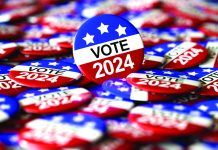Father’s Day may not have quite the same cachet as Mother’s Day due to the sentimental appeal moms command, which may account for why it took far longer to be declared a national holiday.
Though Father’s Day had unofficially been observed since 1908, it was not until 1972, in the middle of a hard-fought presidential re-election campaign, that Richard Nixon signed a proclamation making it a federal holiday at last. It’s observed on the third Sunday of June.
Father’s Day’s roots however predate the 20th century. In Catholic Europe, Father’s Day had been celebrated on March 19 since the Middle Ages. The celebration of all things paternal was first brought by the Spanish and Portuguese to Latin America,
Meanwhile, Mother’s Day, held on the second Sunday in May, was made a national holiday to honor mothers in 1914 with the signing of a proclamation by President Woodrow Wilson.
Origins of a special day honoring dads actually traces its American roots back to July 5, 1908. On that date, a West Virginia church sponsored the nation’s first event explicitly for dads, a Sunday sermon memorializing 362 men who perished in a mine explosion.
The following year, a Spokane, Wash. woman, Sonora Smart Dodd, one of six children raised by a widower, tried to establish an official equivalent to Mother’s Day for male parents. She went to local churches, the YMCA, shopkeepers and government officials to drum up support for her idea, and succeeded: Washington State celebrated the nation’s first statewide Father’s Day on June 19, 1910.
In succeeding years, momentum gained for creation of a national holiday embracing fatherhood.
In 1916, President Wilson honored the day by using telegraph signals to unfurl a flag in Spokane when he pressed a button in Washington, D.C. But it wasn’t until 1924 that President Calvin Coolidge urged state governments to observe Father’s Day as a national holiday.
In 2017, Father’s Day falls on June 18; next year, it will be observed June 17.
During World War II, advertisers began arguing that celebrating Father’s Day was a way to honor American troops and support the war effort. By the end of the war, Father’s Day may not have been a federal holiday, but it was a national institution.
Today, economists estimate Americans spend more than $1 billion each year on Father’s Day gifts.











